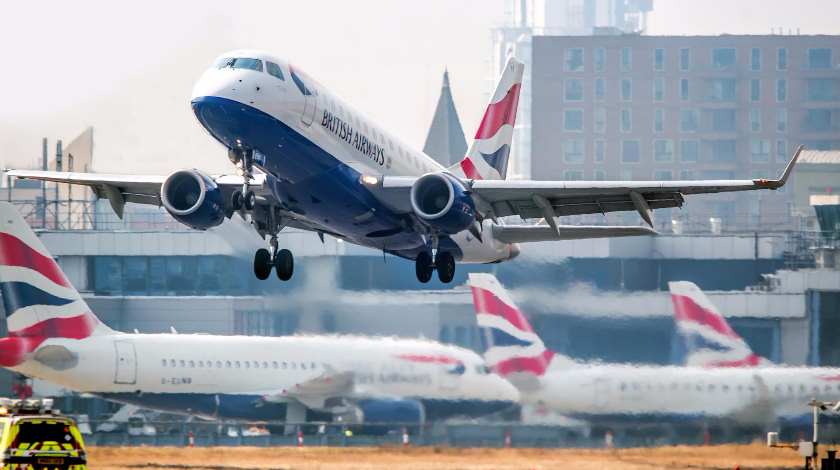
...................................................................................................................................................................
Game of Slots: Why Are Airlines Operating ‘Ghost
Flights’?
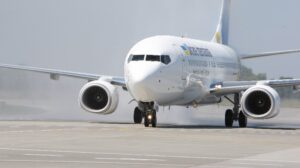 This is because when airlines do not utilise a slot assigned to
them according to the set rules, they lose it to another airline.
This is because when airlines do not utilise a slot assigned to
them according to the set rules, they lose it to another airline.
By Karolina Prokopovič
In light of sharp decrease in air travel
demand, recently the sky has been full of empty or nearly empty aircraft still
operating on their routes.
These flights are also referred to as ‘ghost
flights’. What do you know about this phenomenon?
As the name ‘ghost flight’ suggests itself,
these are the flights without passengers or with very few passengers.
This a part of tough game played by airlines
called: ‘protect your time slots’.
Even without travelers, air operators need to
fly planes to secure their most valuable assets which are their airport
slots.
This is why ‘ghost flights’ are absolutely
legal and common practice in the aviation industry.
What is an Airport Slot?
Before the massive coronavirus hit aviation,
the industry was growing at a skyrocketing pace.
Even with the capacity offered by over 200
airports worldwide, it was not enough for all the airlines to accommodate their
aircraft upon their will and need.
Simply because of lack of proper
infrastructure, because of limited space and limited availability of
runways.
In order to manage disruptions and space
available, airlines were put into an intense game of take-off and landing slots
to avoid chaos and maintain smooth operations.
Most of airports are segmented into slots.
Each slot is valid on a specific weekday, for a specific period of time for a
specific plane of a specific airline to take advantages of the full range of
airport infrastructure necessary to arrive or depart.
Slots are assigned to airlines by an
independent slot coordinator to ensure that these are granted in a
fair, neutral and transparent manner.
Based on the slots availability operators plan
their schedules.
Important to note that slots should be
properly managed on both ends, at the airport of departure and at the airport
of arrival.
As far as each slot is tightly regulated by
the time it requires airlines to be very punctual.
80/20 ‘Use It or Lose It’
Rule
Therefore, you may wonder why airlines just do
not skip their slot, why they choose flying empty planes instead of keeping
them on the ground, which, most probably, would cost much less.
This is because when airlines do not utilise a
slot assigned to them according to the set rules, they lose it to another
airline.
In the European Union, for example, slots are
managed by the a so-called ‘use it or lose it’ rule which requires an air
operator to keep its slot busy for at least 80%.
Otherwise, an airline risks to lose it to its
competitor in the following year.
Keeping in mind the current situation created
by the coronavirus, considering the situation within airlines, the European
Commission has allowed to relax 80/20 ‘use it or lose it’ rule for
airport slots until June, 2020.
“However, granting the suspension only until
June is the very minimum the industry needs, and a decision on a full
suspension until October will be needed within the next month to allow airlines
to plan their schedules”, said
the International Air Transport Association (IATA) in a statement.
Aviation Voice is a global aviation news provider echoing with
up-to-date news, comprehensive analysis, expert opinions and insights on the
most relevant aviation topics giving you a complete view of the market.
Our main goal is to satisfy
your curiosity about aviation by ensuring original and quality content delivered
to you quickly and in a way that is convenient for you to use.
Either you enjoy following
industry’s trends via our website, or prefer getting latest aviation findings
straight to your inbox, or monitor news through social channels, a great piece
of news is already waiting for you to be explored.

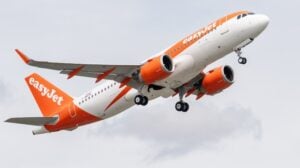
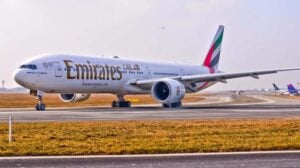
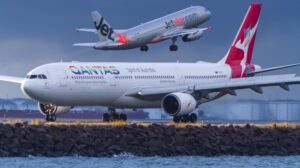
No comments:
Post a Comment